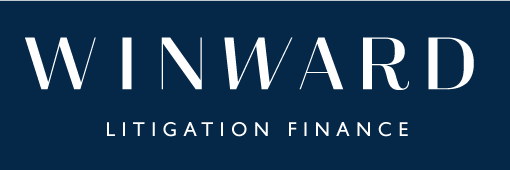Sign up with your email address to receive analysis of the recent litigation funding cases and cases that are relevant to the practice of dispute resolution finance.
Farrar & Anor v Miller [2021] EWHC 1950
This case goes back to 2014, and the claimant died unexpectedly in 2019. The application concerned the efforts of the claimant’s solicitors to be substituted as claimant, pursuant to an assignment that the claimant made before he died. The defendant objected to the assignment on the grounds of champerty.
Harbour Fund III, LP v Kazakhstan Kagazy Plc & Ors [2021] EWHC 1128
In the long-running Kagazy litigation, that commenced in August 2013, the difficulties of enforcement had triggered a number of satellite proceedings, particularly concerning the rights of the funder, Harbour, and the position of the Kazakhstan subsidiary (KK JSC) that was in a form of insolvency in Kazakhstan. Regrettably, Harbour was now the claimant in its own litigation. The case is an uncomfortable read, giving the Court an opportunity to conduct a detailed analysis on a funder’s contractual agreement and also its internal workings and discussions.
Paccar Inc & Ors v Road Haulage Association Ltd & Ors [2021] EWCA Civ 299
This case concerned the important point as to whether funding agreements entered into with claimants by third parties who play no part in the conduct of the litigation, but whose remuneration is fixed as a share of the damages recovered by the client, are damages-based agreements (DBAs) within the meaning of the relevant legislation. The consequences of a positive finding would be that most agreements would be unenforceable.
Zuberi v Lexlaw Ltd [2021] EWCA Civ 16
Although this is case does not involve a litigation funder, it is an important case in relation to litigation funding via Damages Based Agreements (DBAs). For a considerable period of time, solicitors were concerned about DBAs because they appeared very much to be all or nothing.
Rowe & Ors v Ingenious Media Holdings PLC & Ors [2021] EWCA Civ 29
The security for costs orders that were made by the Court in the Ingenious litigation, which had the effect of the funder having to put up a good deal of security, included a cross undertaking in damages, but only in respect of external costs that were incurred by the funder. The issue of the correct approach to cross-undertakings was decided in this case following appeals by both the claimants and the defendants.
Singularis Holdings Ltd v Chapelgate Credit Opportunity Master Fund Ltd [2020] EWHC 1616
The case comes out of an underlying claim which had led to an award of damages of $152m in favour of Singularis. It concerns a funder’s attempt to increase its recovery consequent upon the successful claim and involved having a good look at the fine print of the funding agreement.
Akhmedova v Akhmedov & Ors (Litigation Funding) (Rev 1) [2020] EWHC 1526
One of the dangers of funding financial remedy litigation is that the atmosphere of animosity leads to applications concerning the funding arrangements. In this case, an attempt was made to scupper the proceedings by prohibiting the wife from instructing lawyers funded from monies paid by Burford Capital on the basis that the funding arrangements were contrary to public policy against champerty.
Hall v Saunders Law Ltd & Ors [2020] EWHC 404
This case concerns the extent of the duties (if any) owed by solicitors who conduct funded litigation to those who provide the litigation funding. It is an important case because the funding agreements regularly include references to how solicitors are to deal with funders and yet ultimate control of the litigation always remains with the solicitors.
Chapelgate Credit Opportunity Master Fund Ltd v Money & Ors [2020] EWCA Civ 246
The nightmare scenario for a litigation funder is that the funder itself ends up in litigation, and the original claimant is nowhere to be seen.
